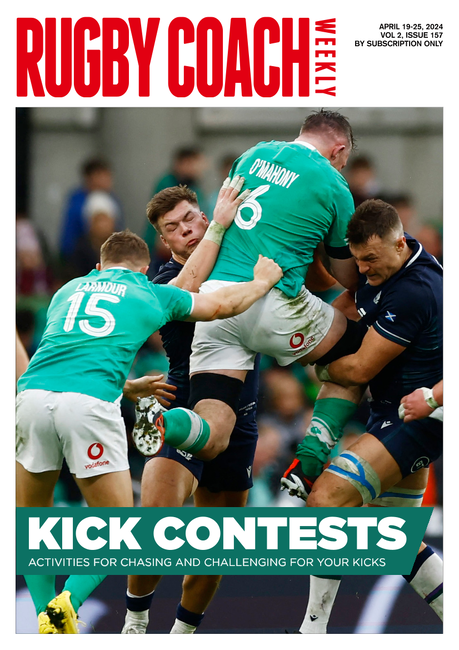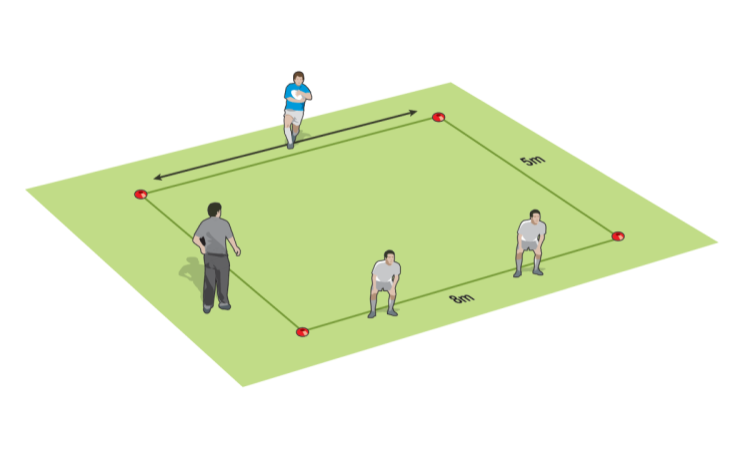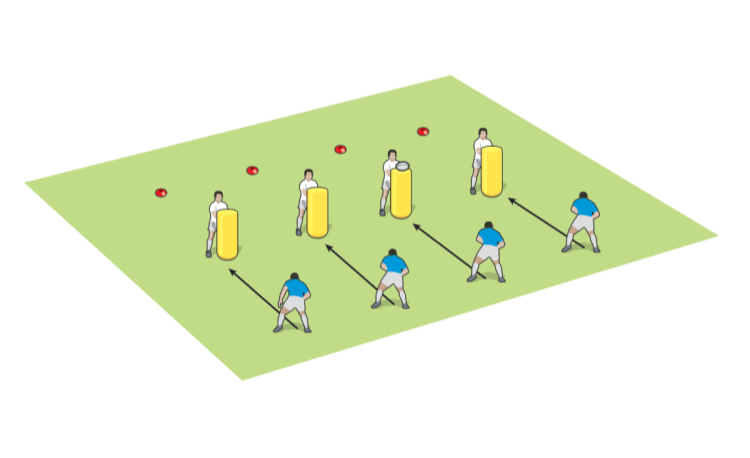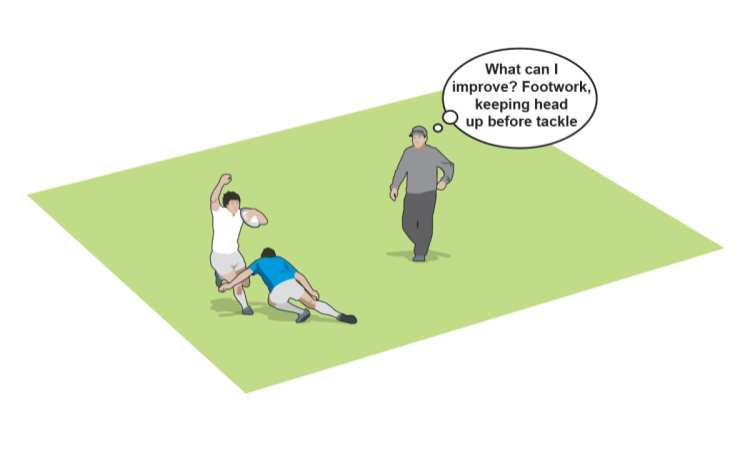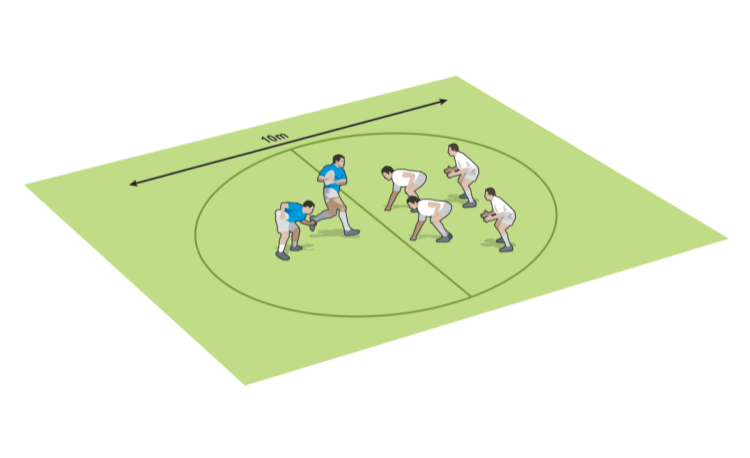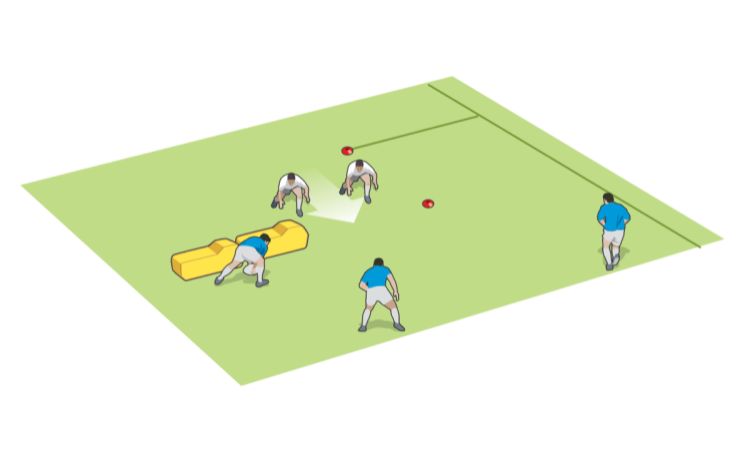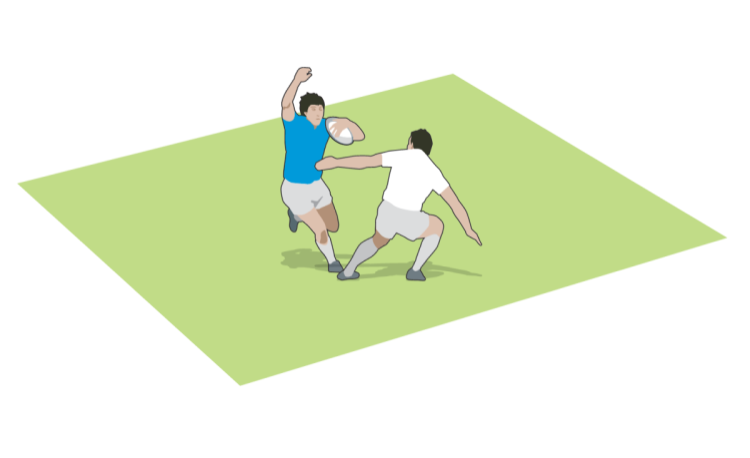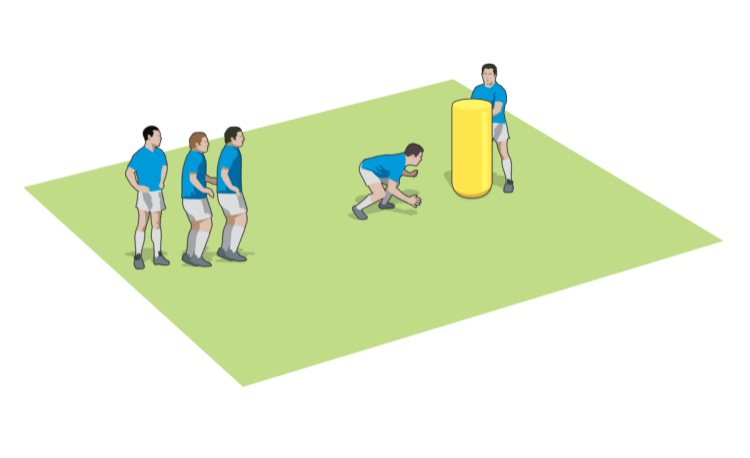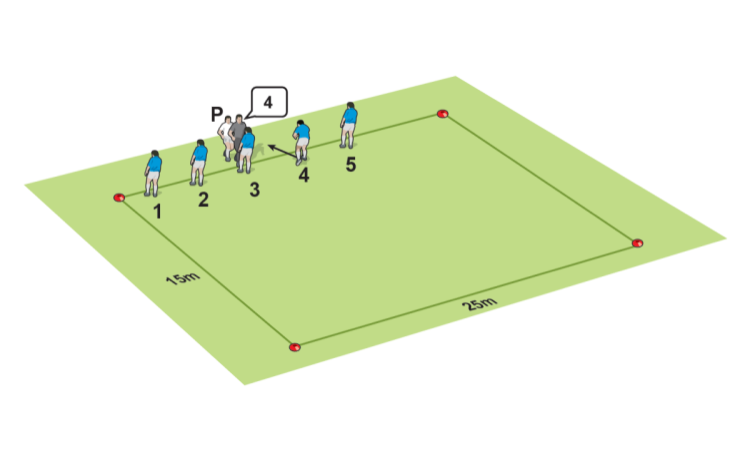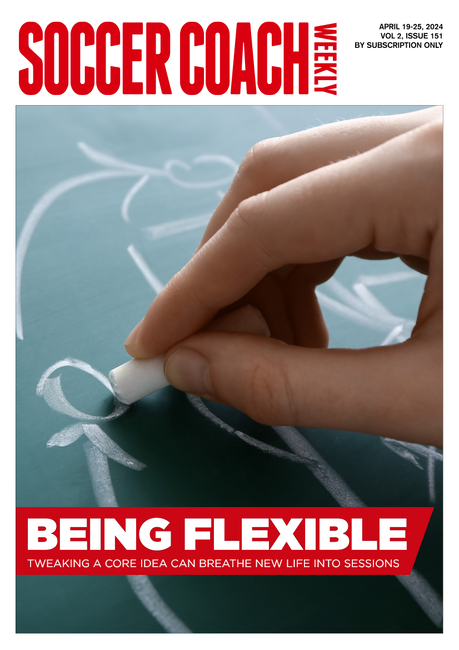You are viewing
1 of your 2 free articles
Surprise tackles for different challenges

I’ve been talking tackling to plenty of coaches in the last few weeks. That’s not unusual. Therefore, I wanted to share with you one of my favourite tackling “drills”: High pressure tackling reactions. I say drill because it’s a 1 v 1 exercise.
However, though it has a drill element, it also has the defender making decisions on which type of tackle to use.
In the end, most of the tackles will be a mix of front-on and side-on. The principles of a good tackle remain the same for both types of tackle:
- Get close.
- Head tight into the side of the ball carrier.
- Shoulder contact and grip hard.
- The legs active through the tackle to unbalance the ball carrier.
- Finish the tackle and recover.
This exercise gives the tackler little time to think about anything but getting close to the ball carrier. They turn and react, while the ball carrier is naturally aiming to avoid the tackler.
When I run this exercise, I aim to praise a tackler who gets most of the “tackle” right, even if they don’t eventually bring down the ball carrier. In this case, it’s getting close enough to make contact with the shoulder.
It should be a rapid-fire exercise, with lots of tackles made and players must be on their toes to be in position for the next go.
Use quick feedback on what went well in each tackle, challenging a player to make small improvements each time. Don’t stop the exercise too often. It’s better when the players are tired because it’s more game-like.
Newsletter Sign Up
Coaches Testimonials

Gerald Kearney, Downtown Las Vegas Soccer Club

Paul Butler, Florida, USA

Rick Shields, Springboro, USA

Tony Green, Pierrefonds Titans, Quebec, Canada
Subscribe Today
Be a more effective, more successful rugby coach
In a recent survey 89% of subscribers said Rugby Coach Weekly makes them more confident, 91% said Rugby Coach Weekly makes them a more effective coach and 93% said Rugby Coach Weekly makes them more inspired.
Get Weekly Inspiration
All the latest techniques and approaches
Rugby Coach Weekly offers proven and easy to use rugby drills, coaching sessions, practice plans, small-sided games, warm-ups, training tips and advice.
We've been at the cutting edge of rugby coaching since we launched in 2005, creating resources for the grassroots youth coach, following best practice from around the world and insights from the professional game.


